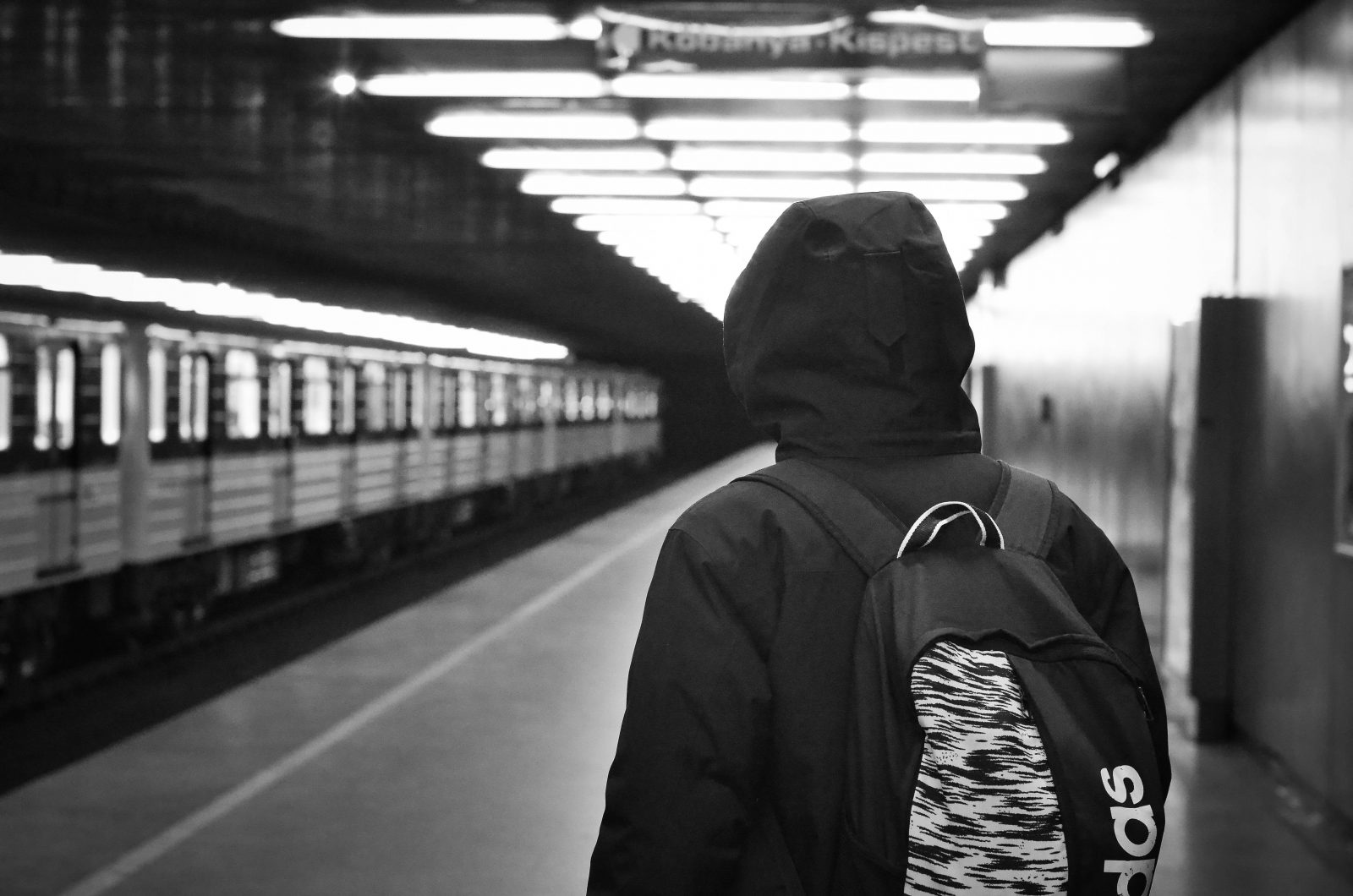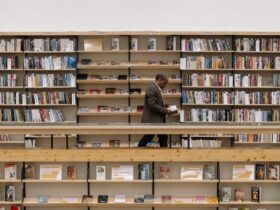I look at the infrastructural development in small villages in Europe and I feel the sadness of what could be in my own continent, but I also refuse to beat myself too much. So, I chose to live in the memories of those mornings of blue skies in my camera devoid of a deadly pandemic.
Malumfashi

It was Christmas morning when I arrived in Zurich.
I was atop Lindenhof Square in the old town of Zurich taking pictures, and Zurich as the sun rises was nature’s magic. It was there I first met Yi Jongho. He had just arrived Zurich too from Seoul in the early morning hoping to explore the European winter. We stood there for minutes, just the two of us, two strangers, two tourists, a Nigerian and a Korean atop a hill in an old European city taking selfies.
“It is beautiful up here,” he had said to me, as his camera shutter continued to click and click at the scenery, in harmony with the world, transient, and global, connecting with the world differently, and in a few seconds, our selfie had travelled the world to Seoul, via Jongho’s Instagram posts.
That same December, a severe acute respiratory syndrome outbreak was identified in Wuhan, China. The coronavirus named officially as Covid-19 would also like a singular social media post, travel the world, deadly and viral, a public health emergency of international concern, with millions of cases.
*
On Christmas Eve, I had changed trains four times already from Munich: Munich – Ulm – Friedrichshafen – Radolfzell – Konstanz. I was at Konstanz by 2am, waiting in the cold winter night, alone in the station for the next train to Zurich – a layover of three hours. Konstanz is a university city in the south of Germany bordering Switzerland – this I would learn from Wikipedia as I kept myself warm, waiting for the 5am train to Zurich. Over the next couple of hours I roamed the border area, all across the University, until I found myself at the border crossing – here in one part I faced Kreuzlingen in Switzerland, and on the other side I was in Konstanz in Germany. A line, a border, and in that moment I put one leg across the line and I was lost in travel; lost in two cities, in two countries; my body shared different politics, different currencies, but the same swift air, blowing on both halves of myself in different countries.
That night I explored those two border towns, as I tried to run down time until the next train. I whirled stones into the lake, howled into the night sky and laid on my praying mat in the railway station, legs crossed and Naziru Ahmad’s Hausa music was the tinny sound springing from my iPhone in ripples; Burna Boy’s lyrics were pulsing with the winds and walls of the station. In the eerie silence of the night in far away Switzerland I brought my music from home to keep me connected to the cozy beats of my room in Kaduna, singing:
“Anybody, wey no want to soji/Anybody, wey no dey carry body/Nack am something, ah ah/Nack am something”
*
From Zurich, I had also travelled to Vienna, Prague and back to Berlin over the period of one week. But it was in Kaduna, northern Nigeria that the coronavirus pandemic caught up with me and imprisoned me within the confines of my bedroom, providing me with an infinite time loop to re-read, relate and contrast my experiences. Rereading James Baldwin’s Stranger in the Village and Teju Cole’s Black Body in a time of corona made me relive the privilege we once had of travelling.
In Nigeria, there was an initial misconception that coronavirus was a disease of the ‘big people’. The poor population saw the ravaging novel virus as a disease for only the rich, those that can afford to travel to faraway places. If they have never been to an airport then why should they contract the virus?
Here I was back in the black continent aware of my place, of my privilege of travel, of my privilege of thinking capacity, and aware of the poverty of my country also. I look at the infrastructural development in small villages in Europe and I feel the sadness of what could be in my own continent, but I also refuse to beat myself too much. So, I chose to live in the memories of those mornings of blue skies in my camera devoid of a deadly pandemic.
This is where I part ways with both Baldwin and Cole also, Zurich is a beautiful city, and I only allowed myself to be ringed by its mountains, lakes, and this old couple I met while having pizza across Lake Zurich who engaged me in the most chance conversation: “We have been married forty years and we are still vegetarians, not a single day have we broken that.”
I did not know what to do with that abrupt and sudden information from this couple that bounced without any previous background, except to nod, smile and take a bite out of my pizza. Every once in a while, I will think of the old and wrinkly husband and wife, chewing on their pizza with so much love and effort, and wonder how they were faring, how vulnerable they were living in a world that despite its many privileges was not ready for a viral pandemic.
*
Arundhati Roy, described this pandemic as a portal, as a gateway, ringing the engine of capitalism to a juddering halt.
“Who can use the term “gone viral” now without shuddering a little? Who can look at anything any more — a door handle, a cardboard carton, a bag of vegetables — without imagining it swarming with those unseeable, undead, unliving blobs dotted with suction pads waiting to fasten themselves on to our lungs?”
The black African body was always disposable not just by the world, but also by its sheep of leaders. That denigration was not new here, following years of failure of governance, but for how long and how many more doses can our worried body take before it emits a revolution?
Malumfashi
And looking at the world right, I remembered that early morning in Kreuzlingen train station, as all the trains came to a sudden halt, all the engines sauntered and died on their tracks, without warning. Everything was quiet and a once bubbly track rested, just like the world right now, except that morning I knew the next train will shudder again at exactly 5:40 in the morning, this time, I went to sleep and woke up without knowing, without expecting.
*
Less than two months after finding myself in two cities, in two countries, while standing at the border crossing between Germany and Switzerland, the first case of coronavirus was confirmed in Switzerland following an outbreak in Italy.
The government banned all events including church masses; schools and shops were closed and restrictions on border crossings imposed. Due to the border closure at Konstanz and Kreuzlingen, Germany, and Switzerland, were divided by fences, a coronavirus no-man’s land where my winter boots once crossed.
In Kaduna, coronavirus came with death and walls – a disruption in movement, a disruption in travel; our rooms became prison bars as the first confirmed case of the pandemic in Nigeria was announced in February. An Italian citizen travelled back to Lagos and tested positive for the virus.
I had been in lockdown in Kaduna, since then, my mental state consumed by empty streets, vacant mosques and churches. A once thriving city shut by a total government enforced lockdown. There were no traders, no open shops; no yellow buses packed with black bodies; no vendors peddling wares on their shoulders; no sugar cane sellers pushing wheelbarrows. People who had to leave their houses daily to be able to fend for themselves and their families now sit in front of their houses, arms folded. It was now each to his own.
I did not know what to do with the lockdown in Kaduna, the information that going outside was now a privilege. So I will stare at the fan rotating on my ceiling, as a Friday turned to a Monday, and a Sunday turned to a Thursday, and every morning before I opened my eyes, I would do that with a flicker of hope, that I would awake and find myself sitting on a praying mat, legs crossed at an empty train station in Konstanz, waiting for the train at 5am, and everything else had been a dream. Eager to close my eyes and open them once more, and find myself back in the serenity of the border towns, waiting for a train, to a more familiar, pandemic-free world.
*
The notification on my phone was an Instagram direct message from Yi Jongho. A reply to an earlier message I had sent asking how he was coping with the pandemic. “How are you? How is Covid19 around you?” he asked too. “I don’t know if you know, but we are living our daily lives through the efforts of the Korean government.”
I could not say the same about my own government.
The first confirmed case of coronavirus in South Korea was announced on 20 January 2020, less than a month after taking selfies with Yi, on Lindenhof Square with the early sun rising across Zurich serving as our filter.
*
In Black Body at a point while reading you find that Teju Cole zooms away from the beautiful village of Leukerbad and its mountainous air and back into the sharper view of the world with its unending sequence of crises:
“This fantasy about the disposability of black life is a constant in American history. It takes a while to understand that this disposability continues. It takes whites a while to understand it; it takes non-black people of color a while to understand it; and it takes some blacks, whether they’ve always lived in the United States or are latecomers like myself, weaned elsewhere on other struggles, a while to understand it.”
During a debate on French TV channel LCI, Camille Locht, head of research at Inserm health research group, was talking about a vaccine trial for the pandemic Covid-19 virus. Jean-Paul Mira, head of intensive care at Cochin hospital in Paris, then said: “If I can be provocative, shouldn’t we be doing this study in Africa, where there are no masks, no treatments, no resuscitation?”
Africa was at the time of the interview the continent least affected by Covid-19.
As confirmed cases of coronavirus in Kaduna continued to rise, worries replaced skepticism. But these worries were less than the worry of starvation and what to eat the next day. Each, was to his own.
The worry here was not so much about the denigration of the African body as a laboratory specimen, or the African body as a door mat for the eventual treatment of a white person. That denigration is not new here. We have experienced it with all its vampirism. In 1996, eleven children died after Pfizer sent a team to Kano in the north of Nigeria during an epidemic of meningococcal meningitis to test the efficacy of its new antibiotic Trovan and a hundred children were given the experimental oral antibiotic.
The black African body was always disposable not just by the world, but also by its sheep of leaders. That denigration was not new here, following years of failure of governance, but for how long and how many more doses can our worried body take before it emits a revolution?

Sada Malumfashi is a writer living in Kaduna, Nigeria. His works of fiction have appeared in Transition Magazine and New Orleans Review’s African Literary Hustle Issue. His essays and creative nonfiction have appeared or are forthcoming in The Africa Report, Saraba Magazine, Enkare Review, This Is Africa and Music in Africa amongst others. He was among the participants in the Goethe Institute Nigeria-Cameroon Literary Exchange Program. He is an awardee of the Goethe Institute/Sylt Foundation Writing Residency through the Literary Exchange Program. He is interested in the intricacies of languages and works on translations bilingually in Hausa and English.
- CALL FOR SUBMISSION: Dear Yusef: Essays, Letters, and Poems For and About One Mr. Komunyakaa - May 25, 2022
- #SubmitNow: Awaiting Revolution Poetry/Essay Anthology - May 21, 2022
- The Straight Path | Adamu Yahuza Abdullah - May 20, 2022













Leave a Reply